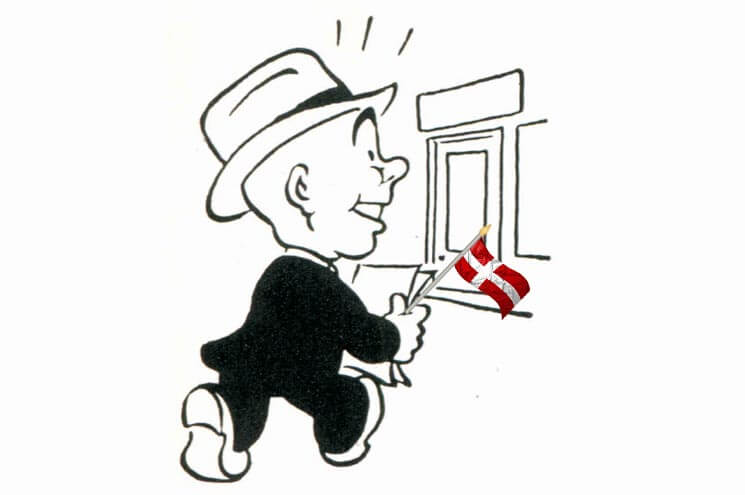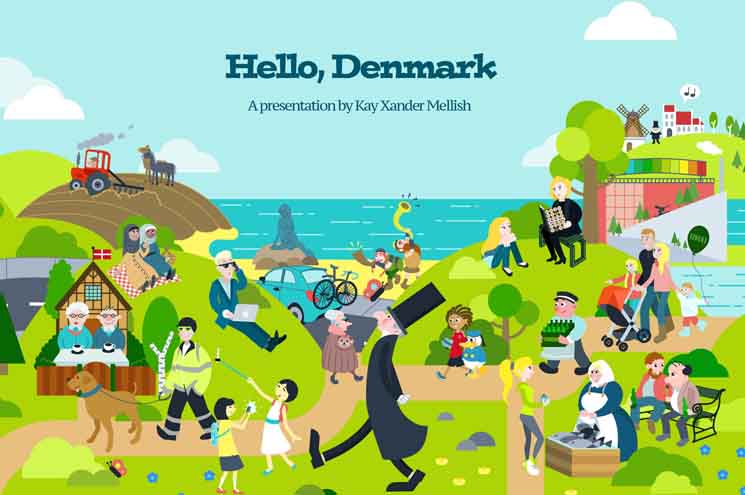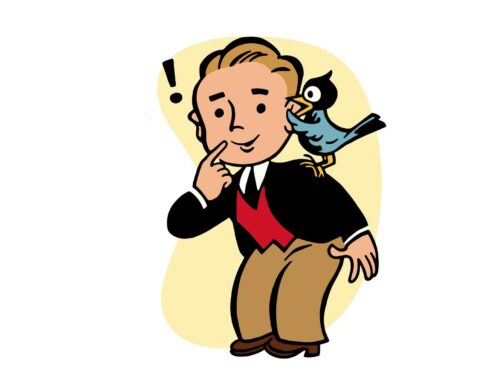On your first day at work in Denmark, you may find a pretty bouquet of flowers on your desk to welcome you.
(This terrified a Chinese acquaintance of mine, who was accustomed to receiving flowers on her last day at work. She thought she’d been fired before she ever sat down.)
In Denmark, the bouquet is just a way to say “welcome” and to add some sunshine to an arduous day that is sure to include many handshakes and computer passwords.
Saying hello to your new colleagues
Someone will probably be appointed as your “mentor” on the first day of the job, and that person will take you around to meet the people you’ll be working with, as well as showing you practical parts of the office like the printer room and the toilets.
Shake hands with everyone you meet and try to remember their first names – although you’ll probably get a lot of duplicates. (Depending on the size of the company, you can expect to meet at least two or three people named Mette, Søren, Pia, Magnus, or Lars.)
Last names aren’t important, at least until you have to find these people in an e-mail list. “Mr.” and “Ms.”, or their Danish equivalents “Herr” and “Fru”, are almost never used in Denmark.
Don’t act overly impressed when you meet the top bosses: this will embarrass them. The people you really need to be deferential to are the administrative staff.
Be particularly kind to the administrators
If you come from a country with a large population and a great deal of unemployment, you may be accustomed to a large administrative staff that helps you with filling out forms, tracking expenses, setting up meetings, and other small tasks.
Such helpful people are rare in Denmark, where most professionals are expected to do these things themselves using online tools.
Often times an entire department will be expected to make do with one administrative person, who officially reports to the top dog. This administrator might be able to help you with the online tools once or twice – but only to teach you how to use them yourself.
Treat these administrative people with the extreme respect they deserve. You’ll need their help now, with all the complications of getting started on the job, and you’ll doubtless need them in the future at a time when you least expect it.
Also be kind to employees who help with coffee or other refreshments. A hospital head-of-staff told me about a foreign doctor who began his tenure by being rude and dismissive to the coffee lady. He soon found himself as the only man in a meeting with no coffee.
Tidiness and working with the cleaning staff
Sloppiness is not considered charming in Denmark, which is located just north of order-loving Germany.
You’ll be expected to leave your desk tidy at the end of your first workday and any other workday, and certainly to remove any leftover food or drinks. Many companies also expect you to wash out your coffee or teacup, or to place it in the shared dishwasher.
Some teams share Friday breakfasts together, and staff take turns putting away the bread and cheese and juice afterwards.
It may seem a little odd, as a trained professional, to occasionally be doing the work of a kitchen lady. But this is how the Danes do it, and they won’t be pleased if you suggest it’s beneath you.
Full-time cleaning staff take care of sweeping floors and other larger tasks. It’s considered good manners in Denmark to greet them when you see them and even share a chat.
One IT specialist from India told me that he was shocked to see his department head sharing a joke with the cleaner. That would never happen in his country, he said.
It happens in Denmark because it’s considered good style for the boss to show that she sees herself as the equal of everyone else on the team, no more or less important than the cleaner.
Actually, if the boss was away for a few days, business would probably run as usual. If the cleaner didn’t show up, the result would be chaos.
Leaving the office
Generally, you don’t leave your Danish workplace during the workday unless you have a very good reason, such as a client meeting, or if you or your child suddenly become ill.
Lunches out are unusual in most companies – the team usually eats together in the company canteen – and leaving the office for personal errands is frowned upon.
If you need to see a doctor on a workday, try to schedule it very early in the day or very late in the day so you don’t miss much work. If that’s not possible, or if you need the entire afternoon for a particularly grueling dentist appointment, it’s usually OK to take time off work.
Don’t schedule meetings later than 3pm or so. Your colleagues (male and female) who have young children will begin leaving about this time to make the pick up from daycare.
These loving parents will either end up missing the meeting or get very annoyed at having to move their schedules around in order to attend.
Don’t say “Go’ morgen” after 10am
Greeting your colleagues when you arrive and saying goodbye when you leave is always good practice, particularly if you work in an open-plan office.
That said, the expression go’ morgen in Danish doesn’t correspond directly to “good morning” in English.
While “good morning” can be said until 11:59 am in most English-speaking countries, followed by “good afternoon” and “good evening,” the time limit on the Danish go’ morgen runs out at about 10:00 am.
Saying go’ morgen after that time has a slightly sarcastic tone, along the lines of “Well, it took you a while to get here. Thanks for showing up.”
The correct greeting after 10am is a simple hej or go’ dag (good day) followed by go’ aften (good evening) at around 5 pm. Go’ nat, or good night, is only said when someone is getting ready to put on their pajamas.
Buy Kay’s books about Denmark on Amazon, Saxo, Google Books, Apple Books, Barnes & Noble Nook, or via our webshop.
Image mashup copyright Kay Xander Mellish 2025
Read also:
Decoding your Danish pay slip and understanding your Danish taxes
How to handle a Danish business meeting
What to wear to work in Denmark: Quiet colors, quality cut and fabric
Trailing spouses and working in Denmark
Motivating Danish employers: Tips for foreign managers
Networking in Denmark: 5 useful tips for making Danish business contacts
Secrets of socializing with your Danish colleagues
The Danish art of taking time off
Your free daily banana and five weeks off: Job benefits in Denmark
Why job titles aren’t that important in Denmark
The Danish job interview
Job search in Denmark: Your Danish cover letter plus LinkedIn plus two magic words
Job hunting in Denmark: Putting together your Danish CV
Fine-tuning your approach to the Danish job market
Finding a job in Denmark: Some tips from my experience
Is joining a union a waste of money? And what is the difference between a union and an A-kasse?
Will I ever be promoted? Plus, how to leverage your annual review
Taking sick days in Denmark, plus how to deal with stress





